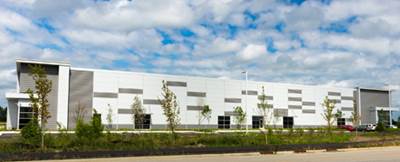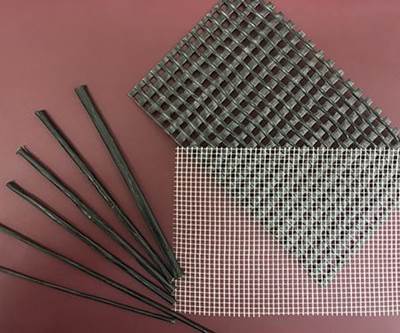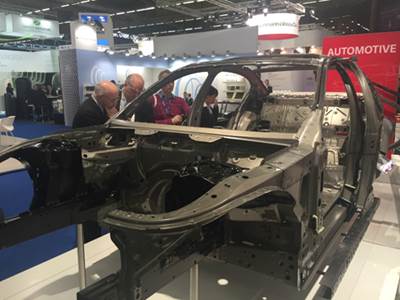Design/Simulation
The steadily growing list of IACMI resources
IACMI, the public-private composites consortium, is a little more than a year old and already has developed a strong collection of partnerships, facilities, equipment, software and material designed to help accelerate new technology development for the composites industry.
Read MoreTrace: A simple, must-have tool
This recently discovered constant in laminate calculations can put designing with CFRP materials on par with designing with metals.
Read MoreTesting is inefficient: Material simulation’s advantage over the status quo
Although simulation cannot replace validation and certification testing, it can offer a path to greater testing efficiency.
Read MoreDigital twin, digital thread and composites
How the integration of machines, sensors and software is beginning to impact composites manufacturing.
WatchLocal Motors to use Siemens software for 3-D printed vehicles
The partnership combines Siemens’ PLM software technology with Local Motors’ leadership in co-created and 3-D-printed vehicles – direct digital manufacturing (DDM).
Read MoreSelective reinforcements boost “commodity” composite properties
Strategically placed advanced reinforcements reduce weight, cost while dramatically increasing mechanical performance and dimensional stability.
Read MoreCarbon fiber meets simulation in ultralight bike frame
Rolo Bikes wanted to design a bicycle frame with carbon fiber in mind, and it wanted test it in the virtual world.
Read MoreJEC World 2016, the full report
ÂÌñÏ×ÆÞ's editors report on the technologies and products that caught our eye at JEC World 2016, in early March.
Read MoreMaterials & Processes: Composites part design
Designers of composite parts can choose from a huge variety of fiber reinforcements and resin systems. That makes knowledge of how those materials work together a critically important aspect of part development. Here's a short description of what that knowledge entails.
Read More






